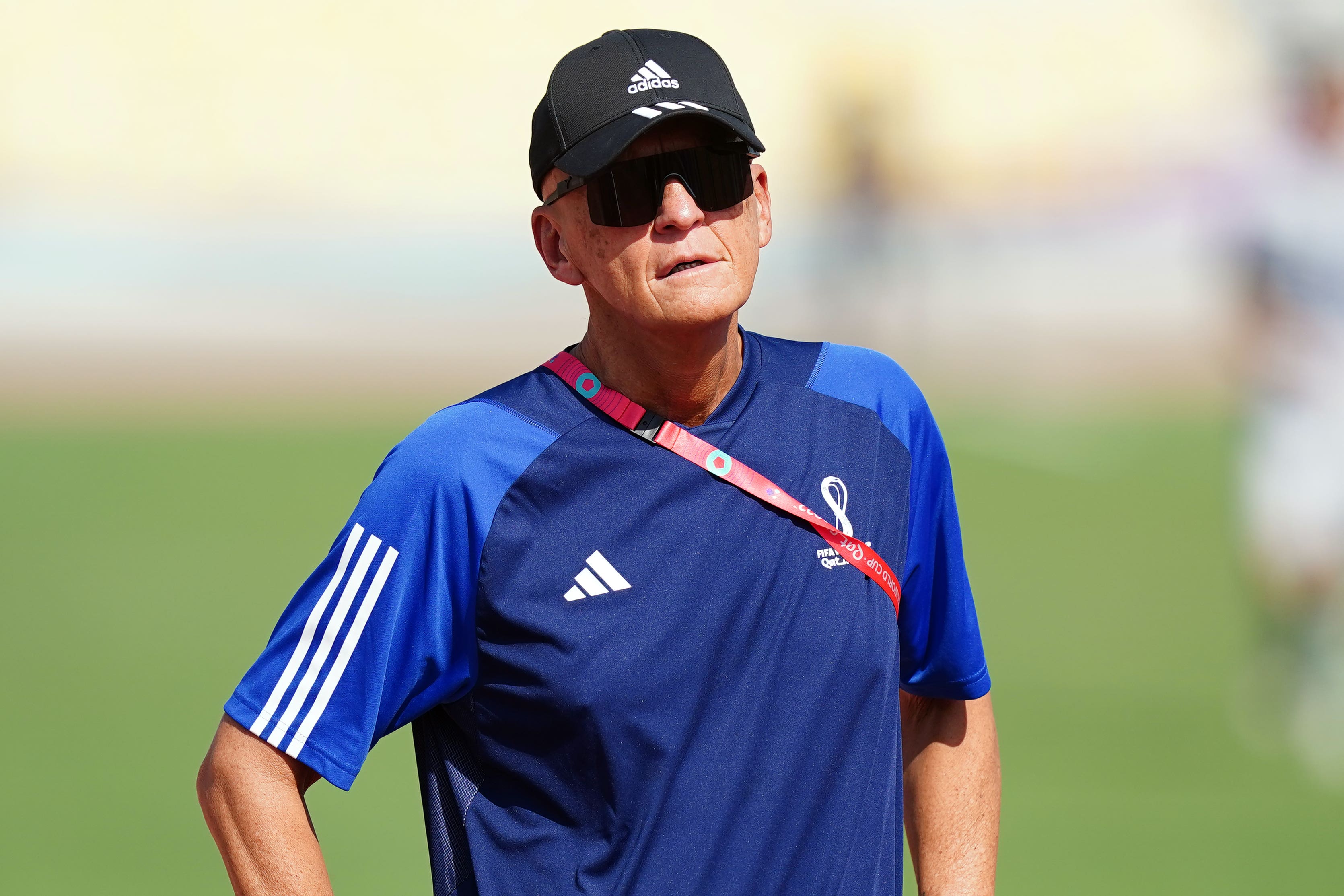FIFA refs chief: Cultural sensitivities no issue when selecting female officials
Three female officials are in contention to make history.

Your support helps us to tell the story
From reproductive rights to climate change to Big Tech, The Independent is on the ground when the story is developing. Whether it's investigating the financials of Elon Musk's pro-Trump PAC or producing our latest documentary, 'The A Word', which shines a light on the American women fighting for reproductive rights, we know how important it is to parse out the facts from the messaging.
At such a critical moment in US history, we need reporters on the ground. Your donation allows us to keep sending journalists to speak to both sides of the story.
The Independent is trusted by Americans across the entire political spectrum. And unlike many other quality news outlets, we choose not to lock Americans out of our reporting and analysis with paywalls. We believe quality journalism should be available to everyone, paid for by those who can afford it.
Your support makes all the difference.FIFA’s referees chief indicated cultural sensitivities would not bar female officials from taking charge of certain games at the World Cup in Qatar.
France’s Stephanie Frappart, Salima Mukansanga of Rwanda and Japanese ref Yamashita Yoshimi have all been selected for the finals, with one set to make history as the first woman ever to oversee a men’s World Cup finals match.
Iran enter the finals at a time when the rights of women in the country are in the spotlight after the death in custody of Mahsa Amini. She was arrested for allegedly not complying with rules over head coverings and her death has sparked nationwide protests against the country’s rulers.
Pierluigi Collina, the Italian who chairs FIFA’s referees committee, was asked if a female referee could take charge of a match involving Iran, Saudi Arabia or Qatar, and was adamant only considerations around neutrality and performance would come into play in the decision-making process.
“For us they are referees,” he said.
“This is the message I gave them when they attended the seminar of the selected match officials for the first time – you are here not because you are women, you are here because you are FIFA match officials.
“Our match officials can be important for all matches and if there are restrictions, they are restrictions to do with neutrality – it’s obvious that this will be considered.
“But they are here as FIFA World Cup 2022 officials and they are ready to officiate any kind of match, depending of course on their performances.”
Being faster doesn’t mean we will have instantaneous assessment of offside
This will be the first World Cup to feature semi-automated offside technology, after VAR made its bow at the 2018 finals.
“Being faster doesn’t mean we will have instantaneous assessment of offside,” Collina said. “It will take less time than now. I also want to underline, the final decision is with the match official.”
FIFA has also encouraged refs to clamp down on time-wasting, dangerous play and simulation.